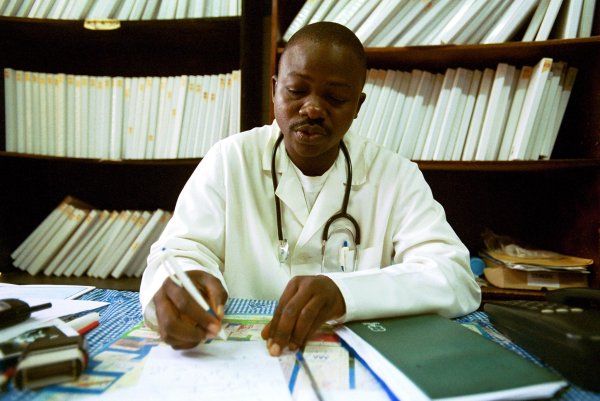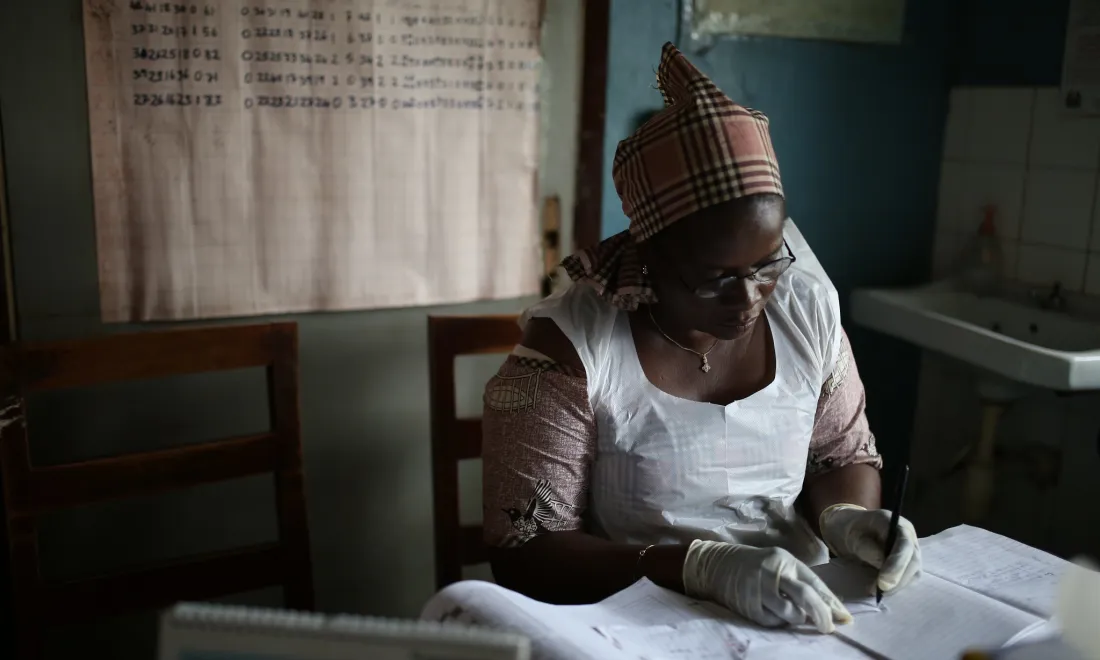CDISC compliant case report forms for uncomplicated VL and VL-HIV co-infection: A unique collaborative effort by VL experts and a first in NTDs
A global collaboration of the visceral leishmaniasis (VL) community has developed freely available, annotated case report forms (CRF) to accelerate research both into uncomplicated VL and specifically for patients with HIV-VL co-infection. The CRFs allow the collection of research-related data in a standard format, enabling the research community to capture data that is accessible, interoperable and re-useable for future analysis and collaboration. This harmonised approach to data collection will maximise the value of data for more efficient and meaningful research that has an invaluable impact on global health.

In 2020, scientists and researchers from the VL research community, pharmaceutical industry, drug regulators, policy makers, and key national and global health partners developed the first poverty-related infectious disease CRF to have been annotated using Clinical Data Interchange Standards Consortium (CDISC) standards. During its development, it became clear that with the falling number of leishmaniasis cases, the proportion of patients with HIV co-infection were increasingly important to the control and elimination of the disease. However, these patients do not fit the standard criteria normally required within a clinical trial making conducting studies extremely challenging. Capitalising on the earlier uncomplicated VL CRF work, a specific CRF for HIV-VL co-infection has now been developed with user guides available for both.
Previously, there was no recognised standard approach to guide methods of recording, storing and reporting the VL clinical trial data required for research, and subsequent drug development. This made comparing studies and data relating to the efficacy of treatments from different groups of researchers challenging. However, the new CRFs provide researchers with a standardised means of recording any data they choose to collect according to a study protocol, allowing study endpoints to be comparable and permitting data from disparate sources to be harmonised and pooled for secondary use. The CRFs also utilise CDISC-compliant terminology. CDISC standards are required by the United States Food and Drug Administration (FDA) and Japan Pharmaceuticals and Medical Devices Agency (PMDA); recommended by the China National Medical Products Administration (NMPA); and adopted by the world’s leading research organisations.
Institutions involved in the collaborations, spearheaded by the Infectious Diseases Data Observatory (IDDO) and the Drugs for Neglected Diseases Initiative (DNDi), with support from CDISC, included the International Centre for Diarrhoeal Disease Research (icddr,b,) Bangladesh; University of Brasilia, Brazil; University of Gondar, Ethiopia; Kala-Azar Medical Research Centre (KAMRC), Rajendra Memorial Research Institute of Medical Sciences (RMRI), the Indian Council for Medical Research (ICMR), Institute of Postgraduate Medical Education & Research (IPGMER) and PATH, India; Médecins Sans Frontières (MSF); University of Khartoum, Sudan; as well as researchers from GlaxoSmithKline (GSK) and Novartis; representatives of the regulatory medicines agencies from the European Medicines Agency (EMA) and U.S. Food and Drug Administration (FDA); and national and global health organisations including the Bill & Melinda Gates Foundation and the World Health Organization (WHO).
The case report form for uncomplicated VL CRF was used for the first time in a clinical trial conducted by DNDi in 2021.
Find out more and download the CRFs
About Visceral Leishmaniasis
VL, also known as kala-azar, is transmitted to humans through bites from infected female phlebotomine sand flies. If left untreated, it is fatal in 95% of cases. Globally, it is estimated that there are up to 22,000 new cases of VL each year which occur in Brazil, Ethiopia, India, Kenya, Somalia, South Sudan and Sudan.
About the global collaboration
The group initially met in New Delhi, India, in February 2020, at a meeting co-organised by IDDO and DNDi, to form a collaboration to create this freely available VL case report form. Expert working groups on VL core outcomes, biomarkers and HIV-VL co-infection were convened to refine the case report form, before a two-part, high-level roundtable achieved consensus across all stakeholders. Remote roundtable meetings with specialists in VL-HIV coinfection were convened in 2021-2022 to address specific data collection for VL-HIV coinfected populations.
Find out more about the process behind the development of the VL CRF.

